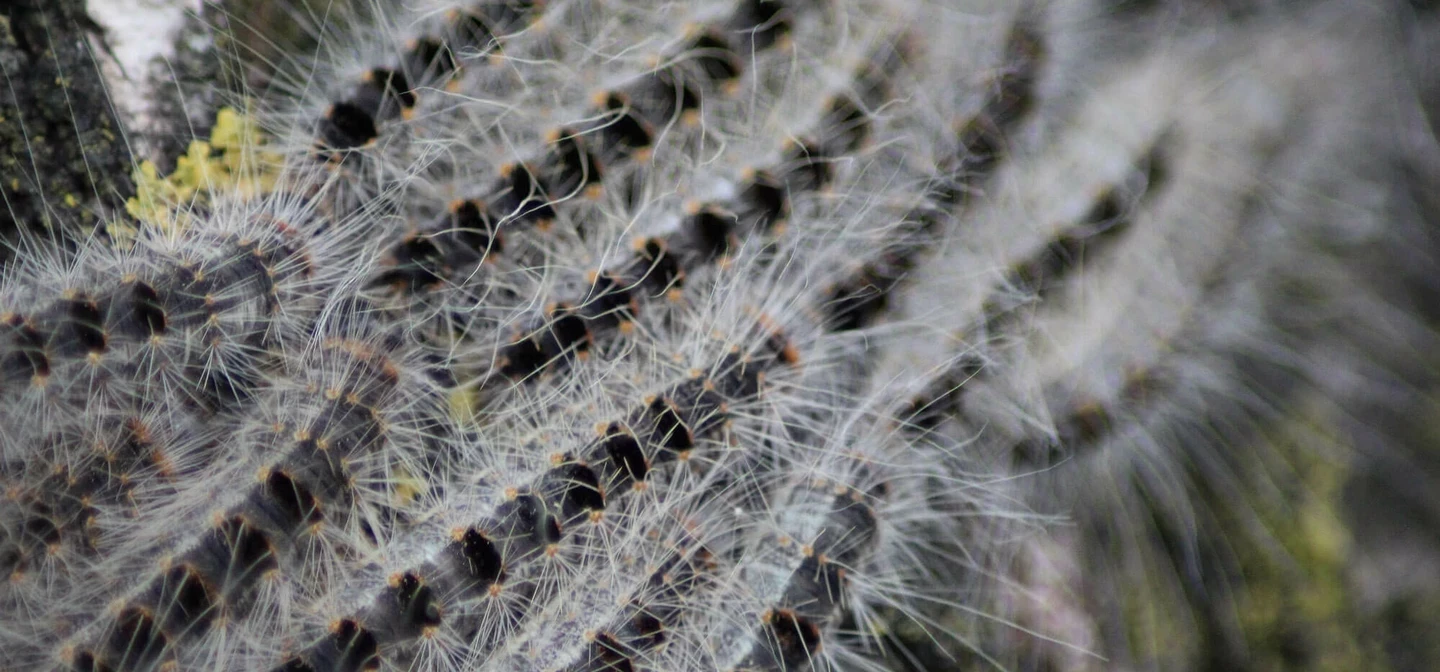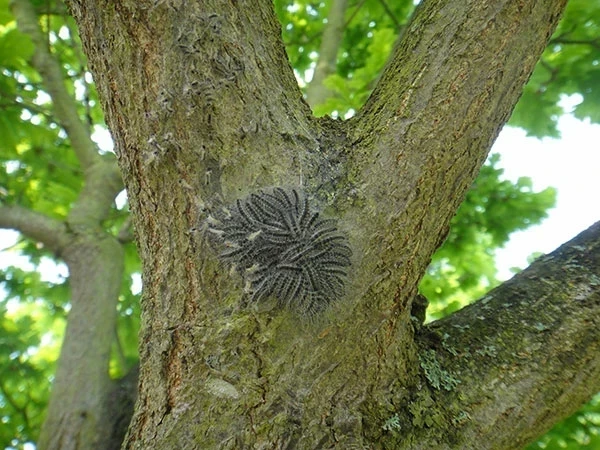
Oak Processionary Moth
Important information on Oak Processionary Moth and what you should do if you find the caterpillars or their nests.
What is the Oak Processionary Moth?
The Oak Processionary Moth is an invasive insect pest of oak trees. Originating in central and southern Europe, it was accidentally introduced to the UK in 2006.

Why are they considered a problem?
The caterpillars of the moth are covered in small hairs which can be a threat to human and animal health, causing persistent itchy skin rashes, eye and throat irritation and sometimes breathing difficulties in people and animals.
In high numbers, the caterpillars can also cause extensive defoliation of oak trees, leaving them vulnerable to other pests and diseases, drought and climate change.
When are the caterpillars active?
The eggs of the moth hatch on oak trees in April. The caterpillars then develop through six stages during May, June and July, before retreating in to webbed nests to pupate. The adult moths then emerge in mid-August.
Summer is the time of year when the processing caterpillars (following in line) are on the move and most visible. They may be found on the ground, and low on the trunk and branches of oak trees before forming webbed nests on any part of the tree.
How is The Royal Parks dealing with Oak Processionary Moth?
The Government’s approach to Oak Processionary Moth is to control, not eradicate, the moth in the established outbreak zone and we adopt a rigorous management programme to control the moths and ensure the safety of park users and animals as far as is reasonably practical.
In June we undertake systematic surveys of oak trees for caterpillar nests, followed by targeted nest removal in July/August. This is carried out by specialist operatives using protective clothing and equipment. Some nests are likely to remain after this activity, so please continue to follow the guidance set out below.
The survey results are also used to inform the approach to control the following year.
What if I spot Oak Processionary Moth caterpillars or their nests?
If you come across the caterpillars or their webbed nests, please do not touch them, keep children and pets away.
It is important that you:
- Do not touch or approach the caterpillars or nests
- Do not try to deal with them yourself. This requires specialist expertise and careful timing
- Warnchildren not to touch or approach caterpillars or nests
- Keep pets away
If you or your child have already come into contact with an Oak Processionary Moth caterpillar or nest please seek medical attention. Similarly, if your dog has come into contact with a nest on the ground please seek advice from a qualified veterinarian as soon as possible.